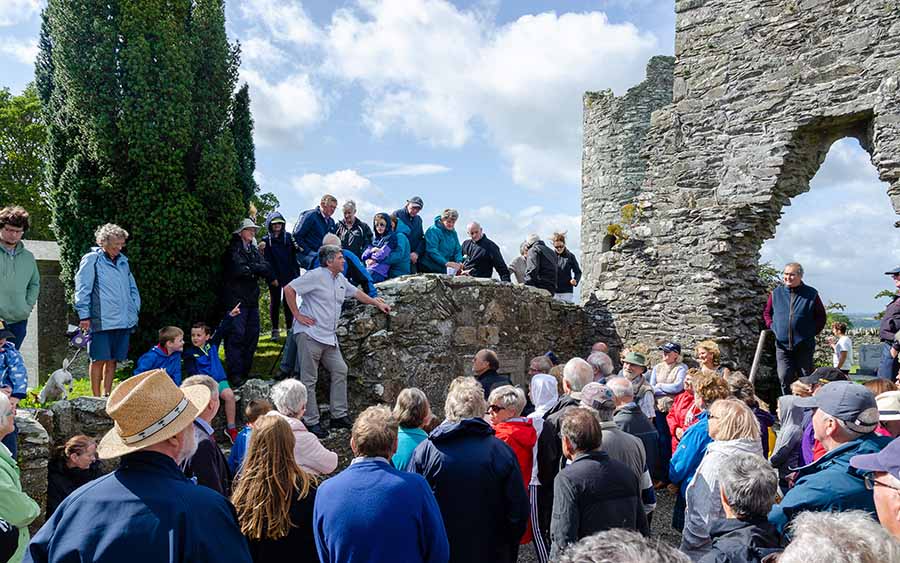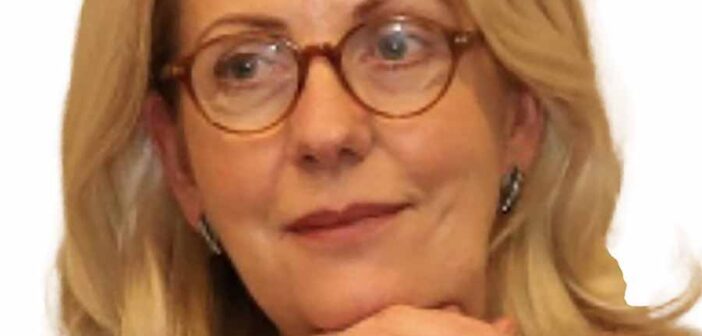
Today’s events for NationalHeritage Week across Ireland include:
- Guided Tour of Ancient Ring Forts – Explore Iron Age sites with storytelling. Start: 10:00 AM. Location: Grianan of Aileach, Donegal.
- Folklore Tales by the Fireside – Evening session of Celtic myths. Start: 7:00 PM. Location: Bunratty Castle, County Clare.
- Archaeological Dig Simulation – Hands-on mock excavation for families. Start: 11:00 AM. Location: Newgrange Visitor Centre, County Meath.
- Traditional Irish Music Workshop – Learn bodhrán drumming basics. Start: 2:00 PM. Location: Irish Traditional Music Archive, Dublin.
- Heritage Walk Through Medieval Streets – Guided stroll with historical reenactments. Start: 9:00 AM. Location: Kilkenny Medieval Mile, Kilkenny.
- Celtic Knot Craft Session – Create illuminated manuscripts. Start: 1:00 PM. Location: Book of Kells Exhibition, Trinity College, Dublin.
- Viking Ship Replica Tour – Board and learn about Norse invasions. Start: 3:00 PM. Location: National Museum of Ireland, Dublin.
- Gaelic Games Demo and Talk – History of hurling and Gaelic football. Start: 4:00 PM. Location: Croke Park Stadium, Dublin.
- Wildlife and Bog Heritage Hike – Discover peatland ecosystems. Start: 10:30 AM. Location: Connemara National Park, County Galway.
- Oral History Sharing Circle – Locals recount famine-era stories. Start: 6:00 PM. Location: Skibbereen Heritage Centre, County Cork.
- Stone Age Tools Demonstration – Flint knapping and ancient tech. Start: 12:00 PM. Location: Céide Fields, County Mayo.
- Irish Language Poetry Reading – Recitals from sean-nós tradition. Start: 5:00 PM. Location: Oideas Gael, County Donegal.
- Castle Siege Reenactment – Live battle with period costumes. Start: 2:30 PM. Location: Trim Castle, County Meath.
- Herbal Remedies from Irish Folklore – Workshop on ancient healing plants. Start: 11:30 AM. Location: National Botanic Gardens, Dublin.
- Emigration Stories Exhibit Tour – Interactive display on the Great Hunger. Start: 1:30 PM. Location: EPIC The Irish Emigration Museum, Dublin.
- Traditional Thatched House Building Demo – See construction techniques. Start: 3:30 PM. Location: Ulster American Folk Park, Omagh, County Tyrone.
- Mythical Creatures Art Class – Draw banshees and leprechauns. Start: 4:30 PM. Location: Hunt Museum, Limerick.
- River Heritage Canoe Trip – Paddle with tales of ancient waterways. Start: 9:30 AM. Location: River Shannon, Limerick City.
- Monastic Ruins Exploration – Guided visit to early Christian sites. Start: 12:30 PM. Location: Glendalough, County Wicklow.
- Celtic Festival Feast and Music – Evening banquet with live harp. Start: 7:30 PM. Location: Cliffs of Moher Visitor Centre, County Clare.
National Heritage Week, invites communities across Ireland to celebrate the nation’s built, natural, and cultural heritage through a diverse array of events.
Coordinated by the Heritage Council, this annual initiative encourages participation from local groups, families, and cultural institutions, offering free or low-cost activities under the theme “Exploring Our Foundations.” Visitors can expect a rich programme of guided tours, workshops, talks, and exhibitions, fostering a deeper connection to Ireland’s history and landscapes. Two of the events will be hosted by Travel Etxra editor Eoghan Corry.
The 2025 programme features events nationwide, building on the scale of 2024, which saw over 1,700 activities. Expect guided heritage walks, such as those exploring the monastic sites of Glendalough or Clonmacnoise, and historical talks, like the 2024 presentation on medieval pilgrimage at the Rock of Cashel.

The Office of Public Works (OPW) will offer free entry to many fee-paying heritage sites, except Kilmainham Gaol Museum. Wild Child Day, held on the second weekend, will encourage children to engage with nature through activities like bird box decorating at Dublin Castle or biodiversity workshops in Clare. Water Heritage Day, on the final Sunday, will focus on Ireland’s rivers, lakes, and wetlands, with events like coastal walks at Sliabh Liag or talks on the lime industry in Donegal. Irish-language events, such as tours at Rathfarnham Castle or storytelling in Donegal, will promote linguistic heritage.
Visitors enjoyedcommunity-driven projects, such as exhibitions at the National Botanic Gardens or historical reenactments like the Fair of Muff in Cavan, where traditional games like skittles are played. Most events are free, with details available at heritageweek.ie, where attendees should check for accessibility and booking requirements.
Visitors wee treated to to an inclusive experience that blends education with participation. Events cater to diverse interests, from history enthusiasts exploring the Maria Edgeworth Centre in Longford to families joining craft workshops or nature trails. Urban centres like Dublin will host activities such as the Liberties Weavers’ walking tour, while rural areas offer intimate experiences, like basket-making in Cooley or uilleann piping celebrations in Mayo. The festival’s emphasis on community involvement ensures local stories and traditions are highlighted, with many events shared online via the #myheritageweek hashtag. Venues are generally accessible by public transport, and some offer accommodations like wheelchair access or audio-described tours, particularly at OPW sites.
National Heritage Week began in 2005, when the Heritage Council assumed coordination from the Department of the Environment, Heritage and Local Government. Initially a modest initiative with 500 events, it has grown into one of Ireland’s largest cultural programmes, with nearly 2,000 events each year.
The Heritage Council, established in 1995 under the Heritage Act, founded the week to promote awareness and conservation of Ireland’s heritage, aligning with European Heritage Days, a joint initiative of the Council of Europe and the European Union. No specific individuals are named as founders, but the Council’s early leadership, including figures like Michael Starrett, its first chief executive, shaped its vision.
The event has since expanded through partnerships with organisations like the Local Authority Waters Programme and the Design and Crafts Council of Ireland. Virginia Teehan, the current chief executive of the Heritage Council, oversees National Heritage Week, ensuring its focus on community engagement and sustainability. In 2024, the theme “Connections, Routes & Networks” highlighted Ireland’s historical pathways, while 2025’s “Exploring Our Foundations” will delve into the cultural and natural elements that define Irish identity.
The festival’s history reflects its role in uniting communities, with projects like the 2023 multisensory exhibition at Limerick’s Hunt Museum, co-curated by visually impaired contributors, showcasing inclusivity. With plans for 2026 already in train, National Heritage Week remains a participatory celebration, inviting everyone to explore Ireland’s past while contributing to its preservation. For the latest programme and to register events, heritageweek.ie is the primary resource.




